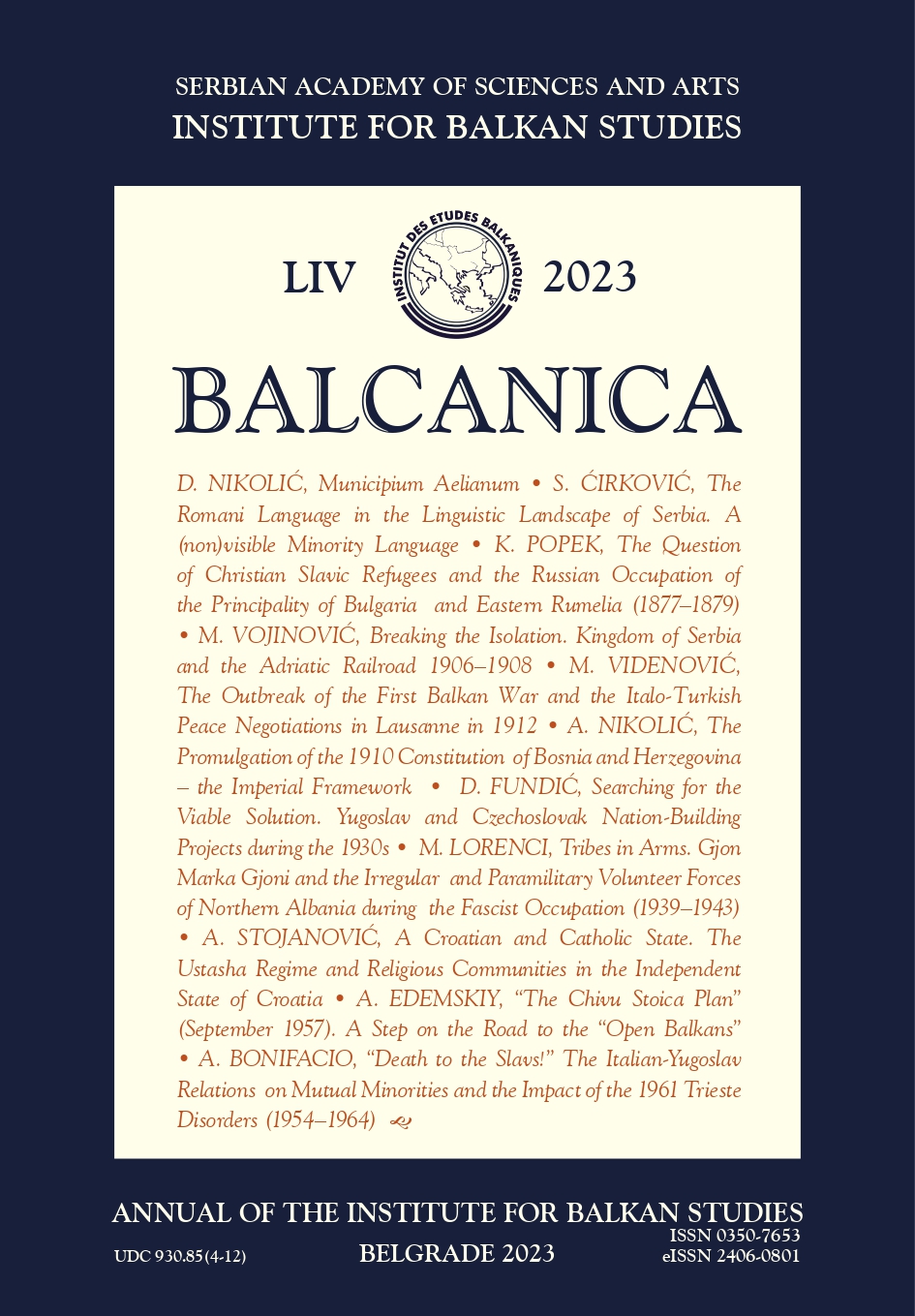The Question of Christian Slavic Refugees and the Russian Occupation of the Principality of Bulgaria and Eastern Rumelia (1877–1879)

Published 30.12.2023
Keywords
- Russo-Turkish War of 1877–1878,
- migrations,
- Russia,
- Bulgaria,
- 19th century
- Russian occupation of Bulgaria,
- refugees ...More
How to Cite
Copyright (c) 2023 Balcanica - Annual of the Institute for Balkan Studies

This work is licensed under a Creative Commons Attribution-NonCommercial-NoDerivatives 4.0 International License.
Abstract
The modern Bulgarian state was founded as a result of the Russian intervention on the Balkan Peninsula in 1877–1878. Until June 1879, the tsarist army occupied the newly created state, which was divided into the Principality of Bulgaria and Eastern Rumelia pursuant to the decision of the Congress of Berlin. During this period, the Russians made all the most important decisions in the eastern Balkans, including those concerning migrations. As a result of the Russo-Turkish War of 1877–1878, about 100,000 Christian Slavs left their homes fleeing the hostilities. After the cease-fire, at the beginning of 1878, most of the refugees came back home; however, the Christians from Macedonia and Thrace, the lands which remained under the Ottoman Empire’s control in accordance with the Treaty of Berlin of July 1878, also started to migrate to Bulgaria. This was a result of unsuccessful uprisings as well as the will to live in a country ruled by the men of the same religion and ethnicity.

